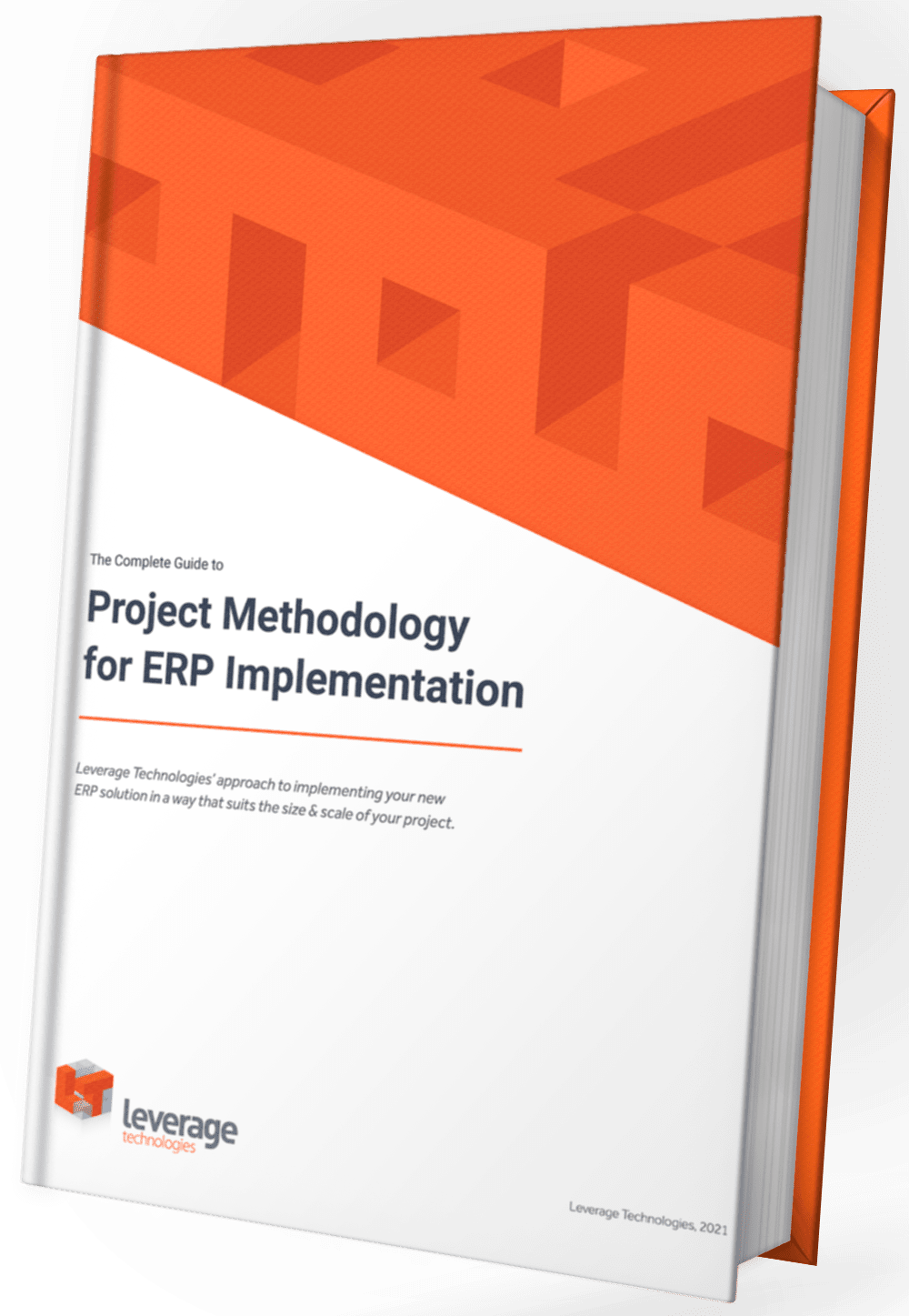

Whether your ERP implementation project is simple or complex, strong project management is needed to:
Leverage Technologies has the experience, processes and tools to ensure effective project control and execution. Learn more about our approach to project management.
But we can’t implement your enterprise solution without your involvement, and we wouldn’t want to. We value your perspective, your first-hand business knowledge, and your ongoing feedback.
The active participation of your team, from leadership through to frontline workers, is essential to achieving the business benefits you want, and a higher return on investment from your ERP implementation.
Keep in mind that the amount of resources you dedicate to a project should be about the equivalent of the consulting resources involved. So if Leverage Technologies spends 50 days on project, collectively your team may need to spend around 50 days working on the project as well.
A project requires stepping outside of business-as-usual. They can take anywhere between 3-12 months to complete.
Project-related demands on your time, team and budget you should plan for include:
Internal brainstorming and documenting business processes
Gathering, cleaning and updating data from multiple sources
Attending meetings, reviewing progress and reports, and giving feedback
Assigning or hiring internal project team members (and possibly backfilling roles)
Mapping accounting and financial reporting processes and structures
Completing project tasks assigned to your business
Internal project governance and strategic oversight
Internal change management during and after the project
Communicating with customers about interruptions or changes to processes
Undergoing training and testing the system’s features
Considering risks or issues that arise and making decisions quickly
Funding changes to the project scope or deliverables
Business interruption during the changeover to the new system
The support of leaders and managers is essential to ensure the whole team knows the project is important and feel empowered to focus on project work as and when needed.
For instance, if you ask people to review the system or attend training but don’t reduce their other duties accordingly—they won’t be compelled to do a thorough job, which puts the project at risk.
When top executives are not actively involved, you run the risk that the final solution doesn’t take into account high-level business needs. If only frontline users contribute, the system will often be built to cater for users but miss more strategic objectives.
Leaders also play a critical role in change management initiatives that should dovetail with major projects like adopting a new enterprise system. Leverage Technologies supports your change management efforts by providing clear and regular updates about work in progress and how different functionality and configurations will influence and benefit your team’s ability to do their jobs.
The Leverage Technologies’ PMO is there to guide your internal project team through the implementation process, but it’s crucial to have an internal project manager that works in your business day-to-day.
Every project benefits from an internal contact point that remains fixed for the life of the project.
If the project is relatively simple, your internal project manager could be any employee with good insight into strategic goals and strong organisational and communication skills who can commit at least part of their time to the project and provide continuity.
Large, complex projects are more effective when led by an experienced and dedicated Project Manager (either seconded internally or employed by your business for the duration of the project).
The major responsibilities of an internal Project Manager include:
Manage the project budget internally
Identify ‘super users’ for train-the-trainer events and run internal training activities
Create system documentation when required
Manage expectations and generate enthusiasm internally
Coordinate internal decision-making and approvals on scope changes
Facilitate communication between the business and Leverage Technologies
Guide and follow-up with other staff undertaking project tasks
Help our consultants access the right resource and data in a timely manner
Assign team members to test the system and collect their feedback
Report on the status of tasks and overall progress to senior managers
If your enterprise solution will consolidate many sources of data from many separate or legacy systems and spreadsheets, it may be useful if your project manager has the technical skill required to clean, convert, reconcile, and manipulate data (or guide others to do so).

Leverage Technologies’ approach to implementing your new ERP solution in a way that suits the size & scale of your project.

One of the reasons that ERP implementations fail is weak ‘internal muscle’. On the other hand, strong internal muscle supports success through:
Better internal planning to identify needs and a realistic scope
C-suite support that increases motivation and commitment
Effective communication that speeds up decisions and project progress
Availability and skill to ensures data conversion occurs smoothly
Training and testing that enhances adoption and ongoing admin of the system
Projects are more closely aligned to goals, efficient and cost-effective when your internal project team and executive sponsors are highly engaged, well-resourced and accountable.
Combine your team’s capabilities with the deftness that Leverage Technologies brings to projects for peace of mind when adopting your enterprise solution.
Our proficient Project Management Office provides the critical governance and best-in-class processes your ERP implementation project needs, enabling the entire project team to deliver value and do their best work.
Leverage Technologies has an outstanding project management track record, gained from more than 350 successful projects completed since our company began in 2005.
Our team is stable, experienced and customer-centric, and we collaborate with you every step of the way.


